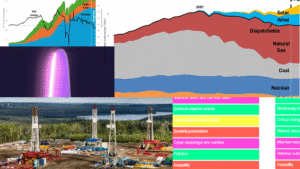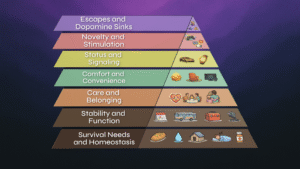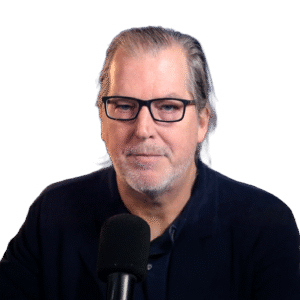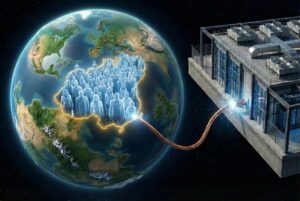On this segment of Frankly, Nate’s former student Lizzy curates and asks some of the most frequently asked questions sent in by listeners during The Great Simplification episodes 1-25. How should we be educating people on energy? What types of fossil alternatives are really feasible? Is a climate disaster the most pertinent and existential risk that we face? Nate gives his answers to these questions, and more. (A trial format for an AMA or live broadcast in future?)
In French, we have a motto that says that a simple drawing is often better than a long explanation. Jean-Marc Jancovici Carbone 4 President
That’s very understandable because with left atmosphere thinking, one of the problems is that you see everything as a series of problems that must have solutions. Iain McGilchrist Neuroscientist and Philosopher
We can’t have hundreds and hundreds of real relationships that are healthy because that requires time and effort and full attention and awareness of being in real relationship and conversation with the other human. Nate Hagens Director of ISEOF
This is the crux of the whole problem. Individual parts of nature are more valuable than the biocomplexity of nature. Thomas Crowther Founder Restor
Show Notes & Links to Learn More
Download transcript01:30 – Energy Blindness
01:47 – Joe Tainter TGS Podcast and Collapse of Complex Societies
03:50 – Germany’s energy transition plan and its reliance on natural gas
05:37 – George Soros vs Bank of England
05:57 – One barrel of oil does 5 years of human labor (Section 4.3)
07:50 – The average American uses 100X more energy than your body needs in food
09:37 – Peak Oil in November 2018
09:50 – New Economic Growth high
10:25 – All the products that come from a barrel of oil
10:41 – China is the biggest oil importer in the world
11:55 – Peak Demand myth
11:45 – Peak oil production growth was in the 1970s
15:18 – 20% of global energy use is electric
15:53 – Nuclear is either on or off aka ‘flat’
16:28 – It take 10 years to build a nuclear plant
16:50 – We are doubling debt every 8.5 years and doubling GDP every 25 years
17:23 – Simon Michaux TGS Podcast
19:15 – Overshoot
19:45 – How much of a risk do people think climate is around the world?
20:10 – IPCC Climate resources (moderate action scenario)
22:02 – The Uninhabitable Earth
22:25 – The effects of 2-2.5 degree celsius increase and effects of incremental increases
23:25 – Biological feedbacks affecting climate
23:27 – The Amazon is becoming a carbon source
23:40 – Greece’s forestry response during the Great Recession
28:58 – Oil priced at negative dollars/barrel (2020)
29:56 – Oil is needed for all aspects of the supply chain
30:06 – Drawing down strategic oil reserves to 40 year low
30:36 – There’s nothing left after shale oil
31:18 – Human biases
34:02 – DJ White
37:35 – 2022 Earth Day Talk
41:17 – Doomerism







